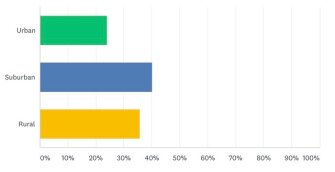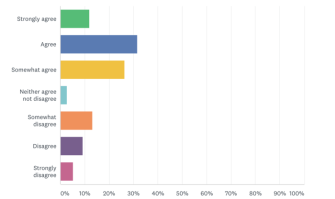It’s no secret that teachers, students, parents, and school leaders are experiencing increased stress this school year. COVID-19 has created a situation where everyone in a school community did not feel as though they had a summer break. It was constant planning, replanning, and planning some more. It feels as though this has been one long school year that began in 2019 and never ended.
What we know is that teachers are trying to do the following:
- Make sure students are six feet apart (two meters for our international friends);
- Wear masks while teaching as they try to make sure their students keep their masks on;
- Teach remotely while dealing with some students who are completely engaged and others who are ghosting them;
- Teach some students remotely (because parents opted for that) as they also try to instruct students within their classrooms.
No doubt there is a plethora of reasons why educators would be stressed out to the point that they are about to break. It used to be that, as teachers, we worried about some students who went home to situations that were not always ideal. Now teachers have nonstop concerns during the day and after school, and it is creating trauma for them, as well as their students. And we know that research has consistently shown the negative impact of trauma on the brain, especially the brains of children.
What About School Leaders?
Recently, I wrote a blog focusing on why we need to be concerned about the mental health of school leaders. They, too, are under a great deal of stress. In fact, in a recent Yale study of over 1,000 school leaders in N.Y.C., researchers found,
Leaders were asked to share the three emotions they had experienced the most during the prior two weeks. An overwhelming 95 percent of the feelings they named could be classified as “negative.” The most commonly mentioned emotion was anxiety, which stood out glaringly above all others—overwhelmed, sad, stressed, frustrated, uncertain, and worried.
When reading the survey results from the Yale study, it is not surprising that during COVID, school leaders would feel a high amount of stress. However, pre-COVID research showed that the job of school leaders has become increasingly stressful. A pre-COVID Penn State University study found that,
- Principals experience substantial job-related stress, yet they often lack the guidance and
- resources necessary to develop their own social and emotional competencies (SECs) that
- could help them respond appropriately.
In a small-scale survey that included over 100 school leaders (DeWitt), 94 percent of the respondents stated that they have experienced an increase in stress over the last seven months during COVID. The respondents for my survey lead schools in suburban, urban, and rural areas (Figure 1), from low socioeconomic schools to high socioeconomic schools (Figure 2).


The Yale study named the health concerns of their faculty, staff, and students; work-life balance; and quality education for their students as the three main stressors they are experiencing. In my survey of school leaders, the ever-changing master schedule and lack of support by the district office or board of education were also highlighted as reasons for the increase in stress. And sadly, several respondents to my survey said that they lost a parent during COVID and that has weighed heavily on them this school year.
Interestingly enough, in the survey of over 100 school leaders, when asked if they experienced an increase in stress before COVID entered into our lives, 44 percent answered that they had not experienced increased stress before COVID. It is possible that hindsight being 20/20, they no longer see the issues they experienced before COVID to be all that stressful.
What Can We Do About It?
Overall, one of the most important actions we can take with students, teachers, staff, and leaders is to understand the enormous amount of stress they are under to complete an almost impossible task. Although we should always have expectations that balance between social-emotional learning and academics (Maslow and Bloom), we need to understand that the depth of learning taking place is not what it will be in non-COVID times.
In the Penn State study, researchers suggest the following actions:
- Healthy relationships
- Effective family and community partnerships
- Effective SEL implementation
- Positive school leadership
- Principals practicing their own social-emotional well-being
In my survey, school leaders were asked if they engaged in dialogue focusing on the importance of adult mental health, and the following image (Figure 3) represents the answers provided.

Penn State researchers also suggested the following supports that school leaders experiencing mental-health issues should seek:
- Professional development for leaders such as mindfulness interventions and emotional intelligence training
- Coaching/mentoring models
In their surveys of school leaders in N.Y.C., Yale researchers found the following to be helpful actions to take to help alleviate stress:
- Strong district and political leadership
- Clear goals and expectations on the part of central-office leaders
- Consistent communication
- Embedded social-emotional learning for adults
Additionally, it is highly important for leaders, and quite honestly everyone on the planet, to practice self-care. In my survey, school leaders were asked whether they practice self-care several times a week, which is represented in the image below (Figure 4).

And they were asked how they went about practicing self-care. You will see “Other,” and the answers ranged from camping, hanging with the dog, and massages to attending counseling once or twice a week.

In the End
COVID comes with stress. If it were in a prescription bottle or one of those medication commercials, COVID would come with a plethora of warnings. First and foremost, we need to give ourselves grace when it comes to how we experience this pandemic because it’s not going anywhere for a while. However, at some point, it will be far behind us.
In the survey, I asked why so many school leaders do not like to talk about stress. The following are some of the answers I received. It is important to note that one respondent did indicate that they disagree with the question and do talk about stress.
- They don’t want to relive it.
- We are leaders—others look to us as strong, positive role models. It can be difficult to admit our struggles and vulnerabilities.
- So many reasons. Feel Weak. Feel like a failure. Feel like it is whining. Social media can make you feel inadequate, like you are never doing enough.
- Because what are we going to do? It’s not going away, and we are responsible for everything.
- A lot of them don’t want to look weak. They think they can do everything until they fall down. They don’t see their weakness, too.
- I don’t find this to be true.
- They don’t have the language/experience talking about the stress. Vulnerability can be seen as a negative.
- Judgment from superior and staff that you are not working hard enough.
- They feel like they need to care for everyone else.
- It makes us feel inadequate.
- Because we have to maintain the calm, positive outlook in order for the school to function in any productive way.
- Everyone is stressed so discussing it can just be redundant. We are all busy. There is not dedicated time to discuss stress.
- We tend to be solution-focused and feel like focusing on stress is counterproductive.
- I believe that no one will listen; the expectation is that you have all the answers. Other administrators do not see this as a priority—they do not like to talk about it—just plow through it.
- You are on an island daily. You don’t have many people to share your stress with. When you go home, you want to leave work at work and not talk about your day. People don’t want to hear the negative. You don’t want to add to their stress level. It is easier to keep it in and move on.
- We are told it’s our job. We must set the tone—so we have to fake it. Upper level doesn’t want to hear what we deal with.
- They are too busy taking on the burdens of everyone else to let themselves be vulnerable. They fear that vulnerability will cause certain devastation and collapse of teachers who are hanging on by a thread.
- I believe administrators do not like to talk about the stress they feel on the job because they take seriously the perception that they are a “balancing” personality in their school. In other words, their staff look to them for stability, and they seek to personify that strength and calm.
- We feel like people widely support teachers and empathize with their stress... but no one wants to hear the “leaders” struggle.
- Because it leads to negative consequences with school boards, parents, and other community members.
- It doesn’t change the stress.
If you are a school leader, and would like to take the survey, please click here.
If you would like to hear more about Peter DeWitt’s survey, please watch the following video where he highlights the Statistics, Science and Strategies leaders need to focus on their own well-being.






